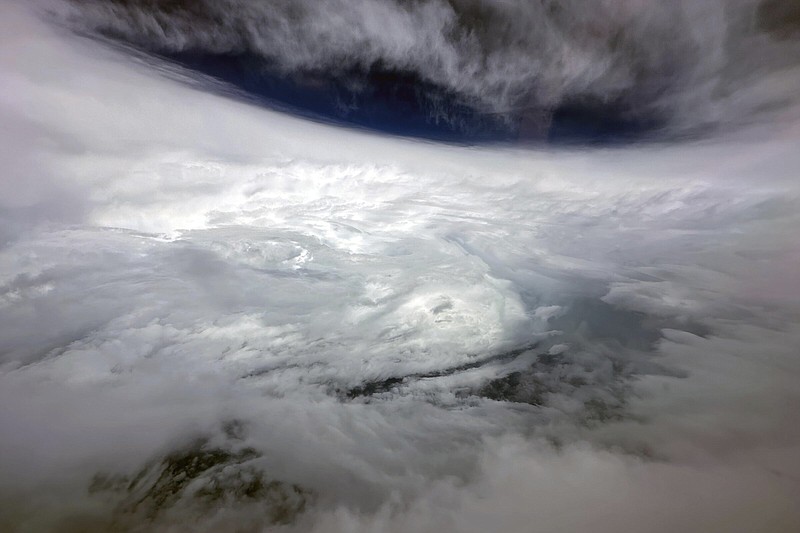HONG KONG -- Most of Hong Kong and other parts of southern China ground to a near standstill Friday with classes and flights canceled as powerful Typhoon Saola passed along the coast.
Many workers stayed at home and students in various cities saw the start of their school year postponed to next week. Trading on Hong Kong's stock market was suspended and hundreds of people were stranded at the airport after about 460 flights were canceled in the key regional business and travel hub.
Rail authorities in mainland China halted all trains entering or leaving Guangdong province from Friday night until this evening, state television CCTV reported.
The Hong Kong Observatory issued a No. 10 hurricane signal, the highest warning under the city's weather system. It was the first No. 10 warning since Super Typhoon Mangkhut hit Hong Kong in 2018.
The observatory said Saola -- with maximum sustained winds of 121 miles per hour -- came its closest to the financial hub at about 11 p.m., skirting about 19 miles south of the city's Tsim Sha Tsui shopping district. The storm's eyewall, which surrounds its eye, was moving across the city at night, "posing a high threat" to the territory, it said.
It expected that winds would gradually weaken today as the typhoon moves west along the coast away from Hong Kong.
The observatory warned of serious flooding in coastal areas and said the maximum water level might be similar to when Mangkhut felled trees and tore scaffolding off buildings in the city.
In recent months, China has experienced some of its heaviest rains and deadliest flooding in years in various regions, with scores killed, including in outlying mountainous parts of the capital, Beijing.
As Hong Kong braced Friday for heavy rains and strong winds, about 400 people sought refuge at temporary shelters, and ferry and bus services were halted. Residents of low-lying areas placed sandbags at their doors to prevent their homes from being flooded.
Dozens of trees were knocked down, and seven people were injured and sought treatment at public hospitals. Classes at all schools will remain suspended today.
But some residents, including security guard Shirley Ng, still had to go to work Friday. Ng said people were stocking up on food to prepare for the storm.
"I just hope that the typhoon won't cause causalities," she said.
Weather authorities in the nearby gambling hub of Macao also warned of flooding, forecasting that water levels might reach 5 feet in low-lying areas this morning. The cross-border bridge connecting Hong Kong, Macao and Zhuhai city was closed at mid-afternoon. Macao leader Ho Iat Seng ordered a halt to casino operations.
In the technology and finance hub of Shenzhen, just to the north of Hong Kong, the emergency management bureau ordered a suspension of work, business and public transport. Use of highways in the city was banned except for rescue crews.
China's National Meteorological Administration said Saola could make landfall in coastal areas from Taishan city in Guangdong province to Shenzhen early today, or just skim across those regions.
Another storm, Haikui, was gradually moving toward eastern China. Coupled with the influence of Saola, parts of Guangdong, Fujian and Zhejiang provinces will experience strong winds and heavy rains, the meteorological administration said. It predicted Haikui would hit Taiwan's east coast on Sunday.
Saola passed just south of Taiwan on Wednesday before turning toward mainland China, with its outer bands hitting the island's southern cities with torrential rain. The typhoon also lashed the Philippines earlier this week, displacing tens of thousands of people in the northern part of the islands because of flooding.
Information for this article was contributed by Alice Fung of The Associated Press.
